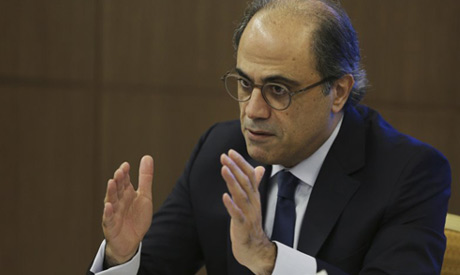
Jihad Azour, the International Monetary Fund's Mideast and Central Asia department director
The International Monetary Fund’s (IMF) Director of the Middle East and Central Asia Department Jihad Azour said on Wednesday that the economic reform program Egypt launched prior to the coronavirus pandemic has helped it absorb economic shocks, uplift economic growth rates, and boost the country’s banking sector.
Azour said that the tourism and export sectors, as well as Egyptian expat remittances, which are a key source of hard currency for the country, are the most affected by the crisis.
Azour’s statements were made during a press conference held online on Wednesday as part of the World Bank and the IMF spring meetings that kicked off on Tuesday.
Egypt has not filed a request so far to receive urgent facilities from the IMF’s appropriated allocations for countries to help them contain the coronavirus.
The IMF is in contact with Egypt’s concerned bodies, in particular with Egypt’s government, the Central Bank of Egypt, and the finance ministry, to discuss the country’s policies, plans, and procedures to contain the outbreak, he added.
CBE Governor Tarek Amer is Egypt’s governor at the IMF, Finance Minister Mohamed Maait is the deputy governor, and Minister of International Cooperation Rania Al-Mashat is Egypt’s governor at the World Bank.
Meanwhile, the IMF unveiled on Wednesday that countries across the world have taken fiscal actions amounting to about $8 trillion to contain the COVID-19 pandemic and its damage to the economy.
In a report, the IMF showed that emergency lifelines provided globally include higher spending and foregone revenues amounting to $3.3 trillion, public sector loans and equity injections of $1.8 trillion, and guarantees of $2.7 trillion.
The Group of Twenty’s advanced and emerging economies are at the forefront with actions totaling $7 trillion, according the report.
Short link: